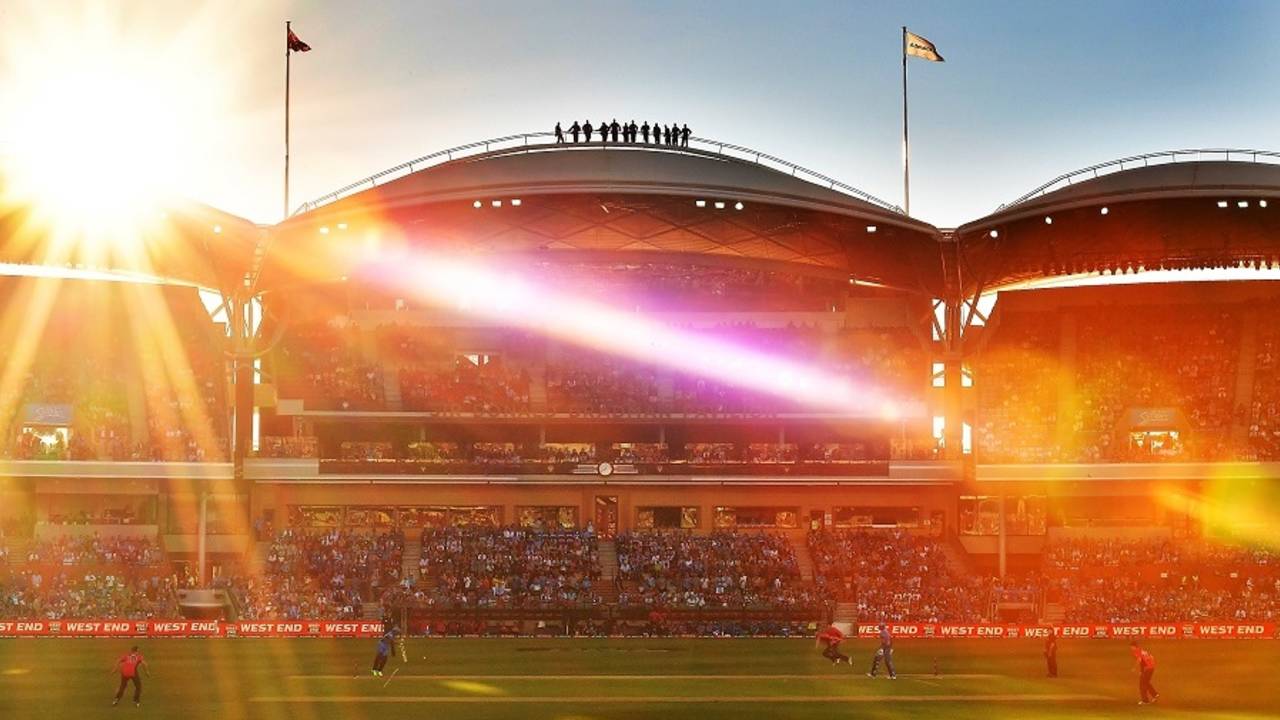James Sutherland, the Cricket Australia chief executive, expects both India and Sri Lanka to agree to day-night Tests next summer, given that the Australian governing body has "telegraphed" its intent to play as many floodlit five-day matches as possible.
Starting with the inaugural pink-ball match against New Zealand in 2015-16 - for which players on both sides were encouraged to take part through the inducement of A$1 million in extra prize money for the Test - CA and Sutherland have been the game's primary advocates for the concept.
However, India are yet to take part in a day-night Test, with the BCCI showing notable reticence about doing so. Apart from Australia, New Zealand, South Africa, Pakistan, West Indies, England and Sri Lanka have all played in at least one day-night Test. Over 16 years as CA's chief executive, Sutherland has seldom wanted to make any assumptions about BCCI decisions, but he expressed confidence that India would agree to play in a floodlit Test next summer, more than likely in Adelaide.
"I would anticipate there's not going to be too much problem there," Sutherland told ABC Radio. "As we've discussed at ICC level, it's very much in the hands of the home country to make judgments on what they think is best. Certainly it's pretty well telegraphed that from our perspective we'd be playing at least one day-night Test match every summer.
"Certainly India, we would expect to draw a bigger crowd [than Sri Lanka]. That will be the first four Tests of the summer. It's not all about that, it's also about how it fits, there's considerations like weather in different parts of the country at different times of the year. They're all the things we need to balance and make a call on over the course of the next few weeks before announcing that final schedule."
Some regular visitors to the Adelaide Test have expressed disquiet about the idea that the South Australian capital will never again host a match played entirely in daylight hours. Nevertheless, Sutherland stated that CA's vision was for both Adelaide and Brisbane to host pink-ball Tests as a matter of course in future, whether in December or the more traditional Adelaide slot around the Australia Day weekend in late January.
"Certainly we've always felt Adelaide is the natural venue for day-night Test cricket," he said. "We played in Brisbane as well and I think that's worked well, we didn't do it this year for an Ashes but I think going forward we would see at least Brisbane and Adelaide as being day-night Test venues.
"I know [Australia Day] is a very traditional timeline for Adelaide and the South Australian Cricket Association and this stadium, but at the same time they're also becoming increasingly attracted to this day-night Test match at this time of year. We'll obviously talk that through with them and with others who have an interest in hosting an Indian Test and a Sri Lankan Test and make a conclusion on that in the coming weeks."
Sutherland said he was not overly concerned by the level of hostility between Australia and England, epitomised on day two by Stuart Broad's send-off to Peter Handscomb after getting him lbw in the first over of the day. "There seemed to be a little bit of what I would call banter on the ground," Sutherland said of day one.
"I don't know the specific details at times but I noticed Aleem Dar was right in the middle of it at times, and he didn't make any reports or anything like that. My observations were it was probably a frustrating day for everyone being on and off the field, and it was a bit slow at times, but we got to see the two leaders of the England attack wanting to perhaps step up the pressure on the Australian batsmen in what was a challenging day for both teams.
"These players know each other pretty well, they've been playing against each other a long time, in fact they play on the same teams at times, so it's very different perhaps to days gone by, and I think that level of respect is still there. But the banter will rise from time to time as the pressure increases and there's more at stake."
Daniel Brettig is an assistant editor at ESPNcricinfo. @danbrettig
